
Mezcal is a distilled alcoholic beverage made from any type of agave. The word mezcal comes from Nahuatl mexcall which means “oven-cooked agave”.
Mezcal is considered a drink of artisan origin. More than 70% of mezcal is made in the Mexican state of Oaxaca.
The origin of mezcal is tied to the introduction of distillation technology from Spanish immigrants. The Spanish had known distillation processes since the eighth century and had been used to drinking hard liquor. They brought a supply with them from Europe, but when this ran out, they began to look for a substitute.
They had been introduced to pulque and other drinks based on the agave or agave plant, so they began experimenting to find a way to make a product with a higher alcohol content. The result is mezcal. Their stills were acquired and adapted by indigenous peoples in the region to produce mezcal from the fermented juices of agave heart.
In the 21st century, mezcal is still made from the heart of the agave plant, called the piña, in much the same way as it was 200 years ago.
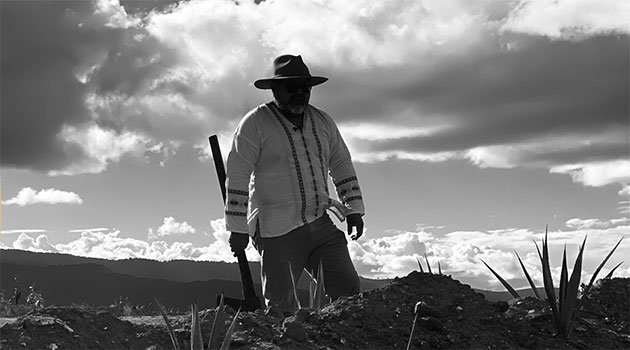
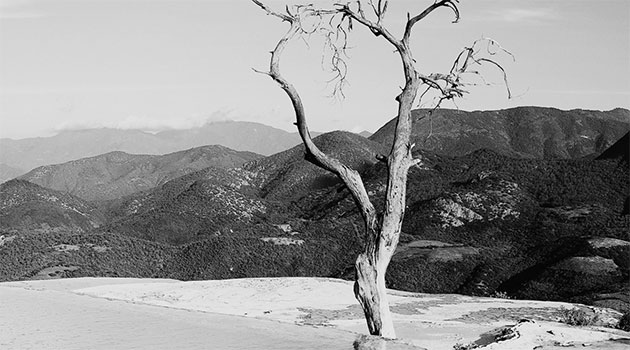
Traditionally, mezcal is handcrafted by small-scale producers. A village can contain dozens of production houses, called fábricas or palenques, each using methods that have been passed down from generation to generation, some using the same techniques practiced 200 years ago.
The process begins by harvesting the plants, which can weigh 40 kg each, and extracting the piña, or heart, by cutting off the plant’s leaves and roots. The piñas are then cooked for about three days, often in pit ovens, which are earthen mounds over pits of hot rocks. This underground roasting gives mezcal its intense and distinctive smoky flavor. They are then crushed and mashed, and then left to ferment in large vats or barrels with water added.
The mash is allowed to ferment, and the resulting liquid collected and distilled in either clay or copper pots which will further modify the flavour of the final product. Mezcal can reach an alcohol content of 55%. Like tequila, mezcal is distilled twice. The first distillation is known as ordinario, and comes out at around 75 proof (37.5% alcohol by volume). The liquid must then be distilled a second time to raise the alcohol percentage.
Mezcal is highly varied, depending on the species of agave used, the fruits and herbs added during fermentation, and the distillation process employed. Most mezcal, however, is left untouched, allowing the flavors of the agave used to come forward.
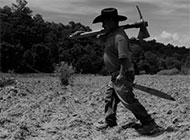

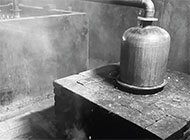
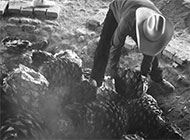

Mezcal is made from over 30 agave species, varieties, and subvarieties, in contrast to tequila, which is made only with blue agave. Of many agave species that can be used to make mezcal, seven are particularly notable. There is no exhaustive list, as the regulations allow any agaves, provided that they are not used as the primary material in other governmental Denominations of Origin. However, the interpretation of this regulation to mean that mezcal cannot be made from blue agave may be a mistranslation. The term silvestre “wild” is sometimes found, but simply means that the agaves are wild (foraged, not cultivated); it is not a separate variety.
Most commonly used is espadín “smallsword” the predominant agave in Oaxaca. The next most important are arroqueño, cirial, barril, mexicano, and cincoañero. The most famous wild agave is tobalá. Others include madrecuixe, tepeztate, and jabalí. Various other varieties of Agave karwinskii are also used, such as bicuixe and madrecuixe.
Internationally, mezcal has been recognized as an Appellation of Origin (AO, DO) since 1994. There is also a Geographical Indication (GI), originally limited to the states of Oaxaca, Guerrero, Durango, San Luis Potosí, Puebla and Zacatecas.
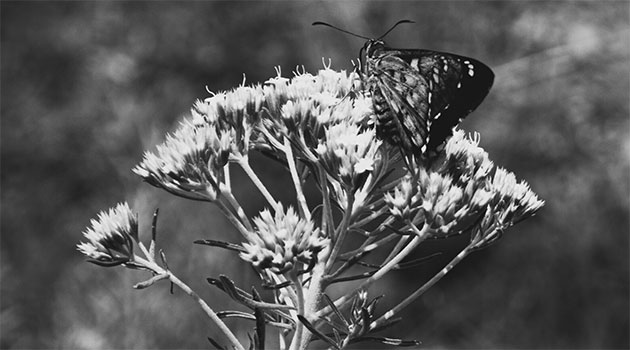
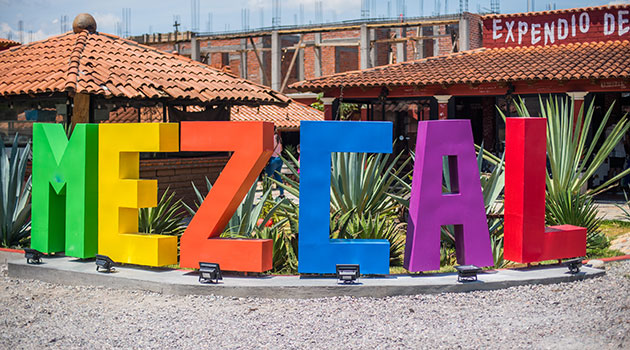

Named for the three tribes that first settled the region, Tres Tribus is a small batch mezcal artisanal from the remote mountains of Oaxaca, Mexico. Tres Tribus is hand-crafted by fifth-generation mezcalero Juan Antonio Coronel. A descendant of the Zapotec and Mixtec people, Coronel’s family has handed down the secrets of mezcal for generations. These time-honored traditional techniques bring forth pure, rich, and complex profiles of the agaves.
Learn more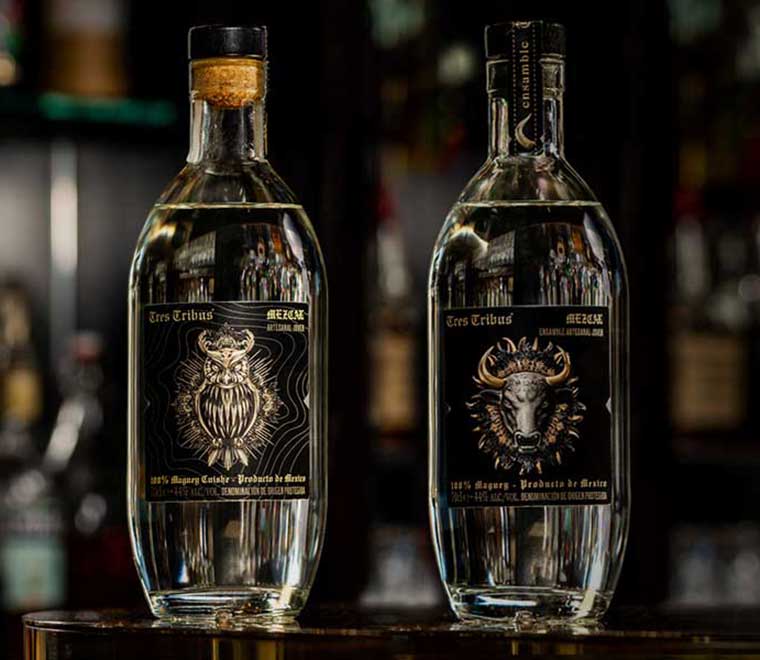
It’s an exciting time for Spirits Platform. We only email you when we’ve got something exciting to share.
Sign up nowYou must be of legal drinking age to enter this website. This website uses cookies.
By entering our website, you agree to our Terms and Conditions and Privacy Policy.
You must be of legal drinking age to enter this website.